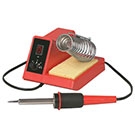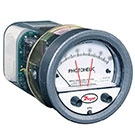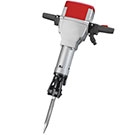Making Your Life Comfortable

The elementary process of visiting a restroom, turning on the light, or washing your hands, uses the products of perhaps four different utilities. Electricity powers the light, water supply systems provide water for washing, wastewater treatment plants treat the sewage, and natural gas or electricity heats the water. Let’s have a closer look at each of the three segments within the utilities sector.
1. Electric power (electricity). This segment includes businesses engaged in the generation, transmission, and distribution of electric power. Electric plants harness highly pressurized steam or some force of nature to spin the blades of a turbine, which is attached to an electric generator. Coal is the dominant fuel used to generate steam in electric power plants, followed by natural gas, petroleum, nuclear power, and other energy sources. Hydroelectric generators are powered by the release of the tremendous pressure of water existing at the bottom of a dam or near a waterfall. Scientists also are conducting considerable research into renewable sources of electric power including geothermal, wind, and solar energy.
2. Natural gas distribution. Natural gas, a clear odorless gas, is found underground, often near or associated with crude oil reserves. Exploration and extraction of natural gas is part of the oil and gas extraction industry. Local distribution companies take natural gas from the pipeline, depressurize it, add its odor, and operate the system that delivers the gas from transmission pipelines to industrial, residential, and commercial customers. Industrial customers, such as chemical and paper manufacturing firms, account for more than a third of natural gas consumption. Residential customers who use gas for heating and cooking, electric utilities, and commercial businesses such as hospitals and restaurants account for most of the remaining consumption.
3. Water and sewage systems. Water utilities provide about 100 gallons of fresh, treated water every day for each person in this country, or close to 40 billion gallons per day nationwide. Water is collected from various sources such as rivers, lakes, and wells. After collection, water is filtered, treated, and sold for residential, industrial, agricultural, commercial, and public use. Sewage treatment facilities operate sewer systems or plants that collect, treat, and dispose of waste from homes and industries.
Mega Depot offers a vast selection of instruments for locating, servicing, and repairing all types of utilities by top manufacturers at the lowest prices!
In general, there are three types of utility companies: for-profit companies, city-owned companies, and rural cooperatives. When it comes to natural gas, there are fewer city- or public-owned utility companies. Most gas companies are for-profit. Rural electric cooperatives provide electric service to large rural regions that are often outside the service area of a city’s or for-profit market. Most water utilities are overseen or operated by local governments.
Utilities are essential services that play a vital role in economic and social development. Quality utilities are a prerequisite for effective poverty eradication. Governments are ultimately responsible for ensuring reliable universal access to service under accountable regulatory frameworks. Increased competition in the utilities sector in recent years has entailed changes in regulatory frameworks and ownership structures of enterprises, in addition to business diversification. These have impacted job security and working conditions in the sector.




























